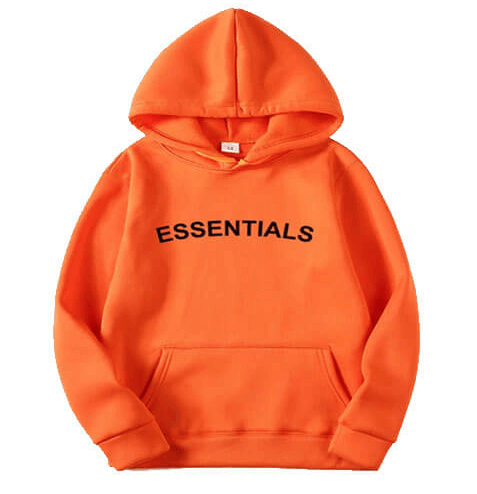In the world of fashion, one of the most crucial decisions when creating a clothing line or choosing the perfect outfit is selecting the right fabrics. The type of fabric you choose can significantly impact the comfort, durability, and overall appearance of the clothing. Whether you’re a fashion designer or a fashion-conscious individual, understanding the various fabric options available and knowing how to make the right choice is vital. In this article, we will guide you through the process of choosing the right fabrics for essential clothing pieces that offer both style and comfort.
Introduction
When shopping for essential clothing pieces, it’s crucial to consider not only the style and design but also the fabric used. The right fabric can make all the difference in how comfortable and confident you feel in your outfit. Understanding the different types of fabrics and their properties will enable you to make informed choices, whether you’re purchasing ready-to-wear clothing or designing your line.
Understanding Fabric Types
Fabrics can be broadly categorized into three types: natural fabrics, synthetic fabrics, and blended fabrics.
Natural Fabrics
Natural fabrics are derived from plant or animal sources. They are known for their breathability and comfort, making them ideal for various clothing pieces.
Synthetic Fabrics
Synthetic fabrics are man-made and often designed to mimic the properties of natural fabrics. They can offer specific benefits, such as enhanced durability and wrinkle resistance.
Blended Fabrics
Blended fabrics are a combination of natural and synthetic fibers. These fabrics aim to combine the best properties of each material.
Factors to Consider When Choosing Fabrics
Several essential factors should be considered when selecting fabrics for your clothing:
Comfort
Comfort should be a top priority when choosing fabrics for everyday wear. Look for materials that feel soft and pleasant against the skin. Essentials hoodie
Durability
To ensure your clothing lasts, opt for fabrics that are durable and can withstand regular wear and tear.
Seasonality
Consider the climate and season when selecting fabrics. Breathable fabrics are excellent for summer, while warmer fabrics are suitable for the colder months.
Style and Appearance
The fabric choice can greatly impact the overall appearance of the clothing. Some fabrics drape elegantly, while others lend a more structured look.
Common Types of Essential Clothing
Before delving into fabric options, let’s explore some common types of essential clothing pieces:
T-shirts and Tops
T-shirts and tops form the foundation of any wardrobe. They come in various styles, from basic tees to dressier blouses.
Pants and Bottoms
Comfortable and well-fitting pants and bottoms are essential for everyday wear.
Dresses and Skirts
Dresses and skirts offer versatility and can be dressed up or down for various occasions.
Outerwear
Outerwear, such as jackets and coats, is essential for staying warm and stylish during colder months.
Ideal Fabrics for Each Essential Clothing Type
Now, let’s look at some ideal fabric choices for each type of essential clothing:
Cotton
Cotton is a popular natural fabric known for its breathability and softness. It’s ideal for T-shirts, tops, and casual dresses.
Linen
Linen is a lightweight and breathable fabric that works well for summer clothing, such as skirts and dresses.
Polyester
Polyester is a durable and wrinkle-resistant synthetic fabric suitable for pants and outerwear.
Rayon
Rayon is a semi-synthetic fabric with a soft feel, often used for blouses and dresses.
Denim
Denim, made from cotton, is a sturdy and versatile fabric used for jeans and casual jackets.
Wool
Wool provides excellent insulation, making it perfect for warm and cozy sweaters and coats.
Silk
Silk exudes luxury and is a popular choice for elegant dresses and blouses.
Spandex
Spandex adds stretch and flexibility to clothing, often used in activewear and form-fitting garments.
Maintaining Your Clothing
To ensure your essential clothing pieces stand the test of time, proper maintenance is crucial:
Washing and Drying
Follow care instructions carefully when washing and drying your clothing to prevent damage and preserve the fabric’s quality.
Storage
Proper storage, such as using hangers or foldings, helps prevent wrinkles and keeps your clothing in good condition.
Repair and Care
Address any minor issues promptly, such as loose hems or missing buttons, to extend the life of your clothing.
Sustainable Fabric Choices
For those seeking eco-friendly options, consider the following sustainable fabrics:
Organic Cotton
Organic cotton is grown without harmful chemicals, making it a more environmentally friendly choice.
Tencel
Tencel is a fiber made from sustainably sourced wood pulp and is biodegradable.
Hemp
Hemp is a durable and low-impact fabric, requiring minimal water and no pesticides during cultivation.
Understanding Fabric Labels
Pay attention to fabric labels on clothing items to understand the material composition and care instructions better.
Conclusion
Selecting the right fabrics for essential clothing is a critical aspect of achieving comfort, style, and sustainability. By understanding the different fabric types, considering essential factors, and being mindful of maintenance, you can build a wardrobe filled with clothing that not only looks great but also feels fantastic to wear. Read more…
You may also like
-
Delhi Agra Jaipur Tour – Best Golden Triangle Tour Packages
-
Union Developers– A Trusted Real Estate Developer in Pakistan
-
Budget-Friendly Sustainable Canvas Bags in UAE That Make a Big Impact
-
How to Experience the Thrill of the Slope Game!
-
United Airlines Flight UA770 Emergency Diversion: A Closer Look

